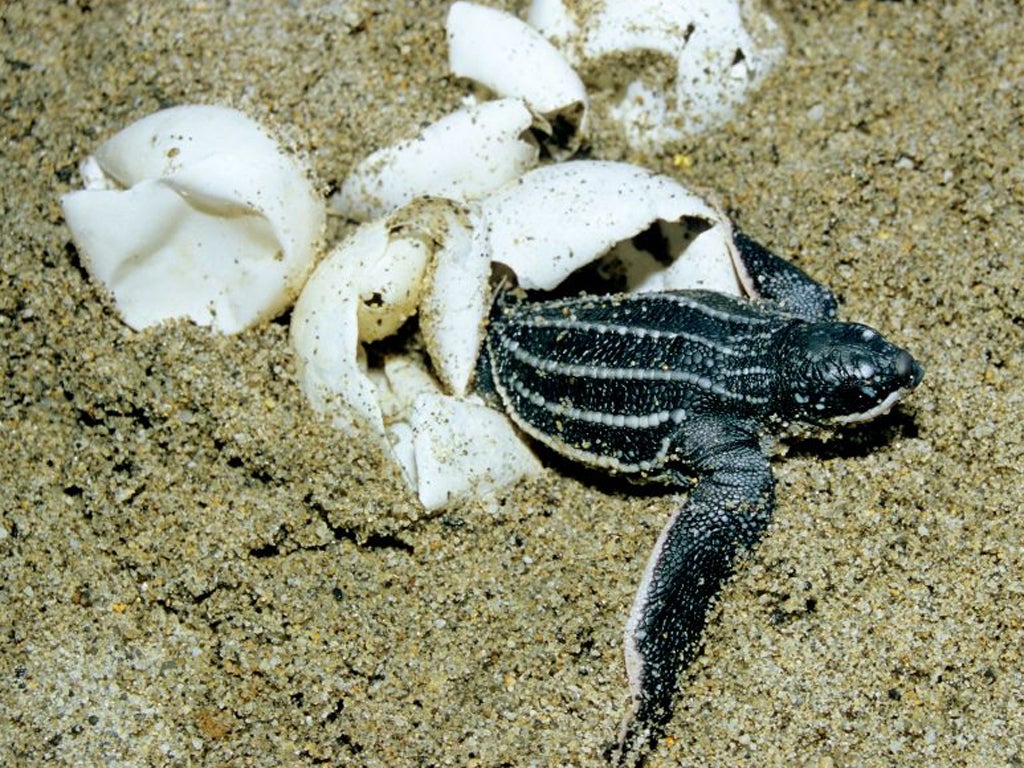Thousands of turtle eggs destroyed in excavation
Hotel foundation work mistakenly digs up nesting beaches in Trinidad and Tobago

Your support helps us to tell the story
From reproductive rights to climate change to Big Tech, The Independent is on the ground when the story is developing. Whether it's investigating the financials of Elon Musk's pro-Trump PAC or producing our latest documentary, 'The A Word', which shines a light on the American women fighting for reproductive rights, we know how important it is to parse out the facts from the messaging.
At such a critical moment in US history, we need reporters on the ground. Your donation allows us to keep sending journalists to speak to both sides of the story.
The Independent is trusted by Americans across the entire political spectrum. And unlike many other quality news outlets, we choose not to lock Americans out of our reporting and analysis with paywalls. We believe quality journalism should be available to everyone, paid for by those who can afford it.
Your support makes all the difference.Conservationists are blaming the government of Trinidad and Tobago for the loss of as many as 20,000 leatherback turtle eggs after excavation crews overran a beach that has long been considered one of the most important nesting grounds for the endangered species.
"It was a disgusting mess," Sherwin Reyz, of the Grand Riviere Environmental Organisation, said of the scene on a mile-long beach on the northern shore of Trinidad. Those eggs that were not crushed were eaten by dogs and vultures once they had been exposed. "They had a very good meal, I was near tears. This is the worst set of destruction I have ever seen by humans on turtles."
The carnage occurred last weekend as crews tried to redirect the shifting estuary of the Grand Riviere which had been threatening the foundations of a nearby hotel. Guests staying there delight in watching the nesting rituals of the leatherbacks, which can grow to weigh a tonne and live for 100 years.
But according to witnesses and to the owner of the Mt Plaisir hotel, Piero Guerrini, the government had delayed the start of the work and then at the last moment dispatched a team with heavy machinery. It seems they botched the job, digging up a wider swathe of beach than was necessary.
"For some reason they dug up the far end of the beach, absolutely encroaching into the good nesting areas," said Mr Guerrini. "This could have been avoided with a much wiser approach. But it was done too late and it was done in the wrong way."
Guests at the hotel, who had checked in hoping to watch the miraculous moment when eggs crack open and hatchlings make for the water – only 1 per cent survive to adulthood – instead watched the destruction in horror. Some joined with locals in scooping up about 500 hatchlings in hopes they could be saved. "Before, the authorities were much quicker, much more responsive and also concerned about the turtle nesting areas," Mr Guerrini told the Associated Press. "This time, there seemed to be no concern."
Experts said that while the loss was distressing, the long-term impact on the leatherback turtle population may not be too significant. "This one event will not change the course of leatherback conservation in the Caribbean," said Marydele Donnelly, of the Florida-based Sea Turtle Conservancy.
Several Caribbean nations, including Costa Rica, have made strides in recent years to protect the turtles while at the same time making some of their nesting areas accessible to tourists to help raise awareness. Trinidad and Tobago outlawed the killing of sea turtles in 1966. Recognisable from their long flippers, the leatherbacks are the largest of all the sea turtle species and are considered critically endangered.
In spite of the protection efforts, the outlook for the leatherbacks is perilous. Conservation groups estimate that only about 43,000 nesting females remain around the world compared to about 115,000 in 1980.
"Their equipment was basically crushing a much, much larger part of the beach than made sense. It looked like a bit of a panic reaction and they didn't follow procedure," Marc de Verteuil, of the Papa Bois Conservation organization said of the excavation work. "It's a failure of governance."
Join our commenting forum
Join thought-provoking conversations, follow other Independent readers and see their replies
Comments